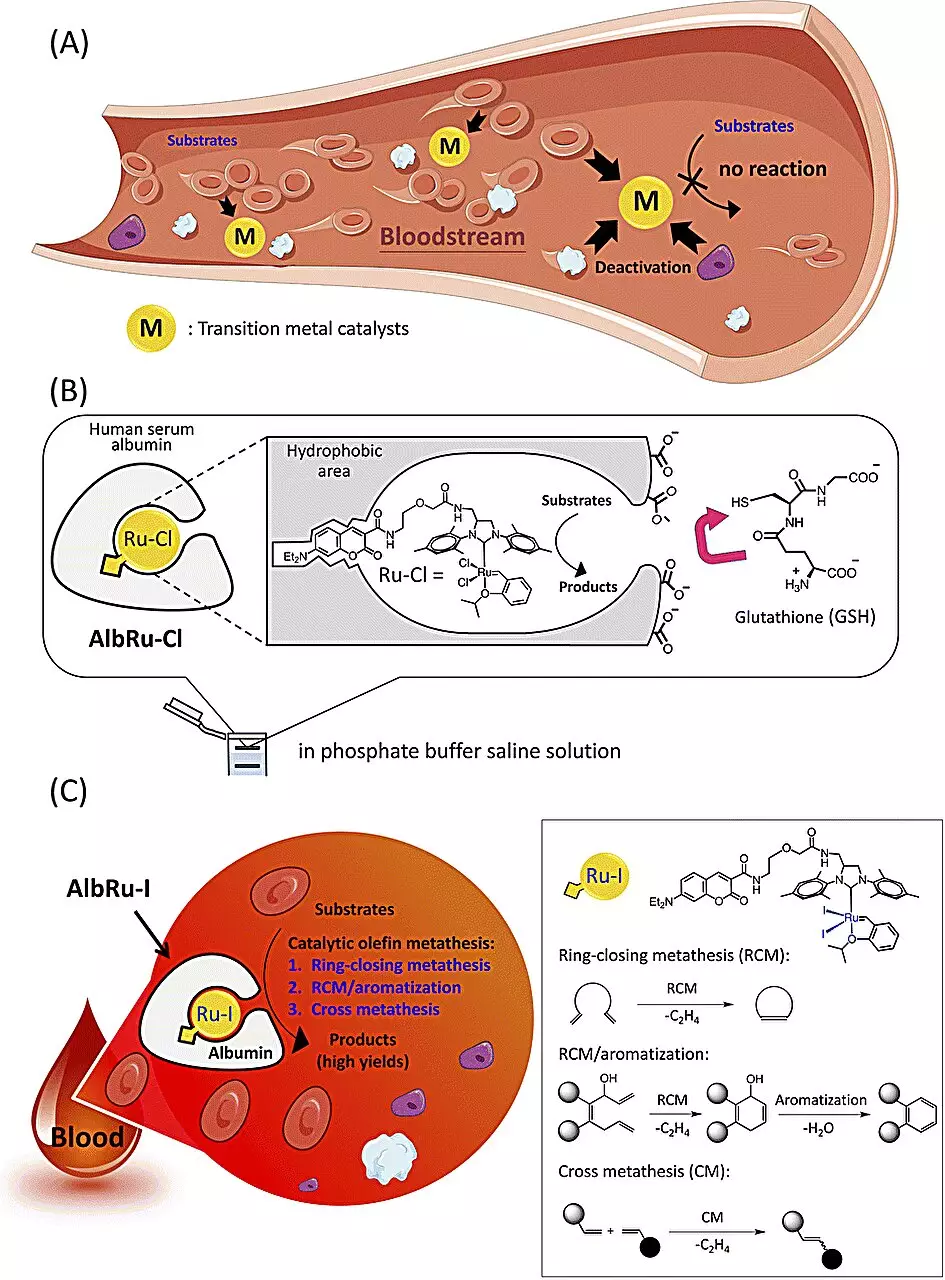RIKEN chemists have made a groundbreaking discovery with the development of a highly active catalyst that can synthesize drug molecules within the body. This new catalyst has the potential to revolutionize drug delivery methods by assembling drugs at specific target sites, minimizing side effects and maximizing effectiveness.
Conventional drug delivery methods, such as injections or pills, have limitations as the active drug molecules circulate throughout the body, affecting not only the target site but also healthy tissues. This often leads to severe side effects that can cause permanent damage and halt treatment. The ability to assemble drug molecules at target sites within the body would be a game-changer in the medical field, as drugs could effectively treat diseases without harming healthy tissues.
The RIKEN team focused on drug assembly within the body using a catalytic chemical reaction called olefin metathesis. This reaction is known for its efficiency in constructing carbon-carbon double bonds to synthesize drugs. By adapting this reaction for in-body drug synthesis, the team aimed to unlock the potential for synthesizing a wide range of drugs.
One significant challenge of in-body drug synthesis is the deactivation of chemical catalysts by biomolecules in the bloodstream. To overcome this issue, the RIKEN team embedded a ruthenium-based olefin metathesis catalyst within a protective protein called human serum albumin. This resulted in the creation of an artificial metalloenzyme called AlbRuI, which exhibited high catalytic activity.
By switching to a ruthenium iodide complex, the team achieved a far more superior artificial metalloenzyme. The AlbRuI catalyst demonstrated robust stability in blood for up to 24 hours and catalyzed three types of olefin metathesis reactions with high yield at low catalyst concentrations. This breakthrough opens up new possibilities for the development of metal-based artificial metalloenzymes for catalytic reactions in the bloodstream.
In addition to its impressive stability and catalytic activity, AlbRuI also showed promise in inhibiting tumor growth. The team successfully synthesized an antitumor drug at the target site using a low dose of AlbRuI, resulting in significant tumor growth suppression in mice. This localized drug synthesis holds great potential for targeted cancer treatment.
The RIKEN team aims to expand the range of applications for their catalyst and hopes to utilize AlbRuI to synthesize various bioactive molecules. This breakthrough in in-body drug synthesis has tremendous implications for the medical field, opening doors to more effective and targeted drug delivery methods.
RIKEN chemists have developed a highly active catalyst, AlbRuI, capable of synthesizing drug molecules within the body. This breakthrough offers the potential for targeted drug delivery, minimizing side effects, and maximizing efficacy. The use of olefin metathesis and the incorporation of human serum albumin as a protective protein have significantly enhanced the stability and biocompatibility of the catalyst. The team’s success in inhibiting tumor growth in mice through localized drug synthesis highlights the immense potential of this technology. The development of AlbRuI and the possibilities it presents for in-body drug synthesis mark a major advancement in the field of medicine and bring hope for more effective and personalized treatments in the future.


Leave a Reply